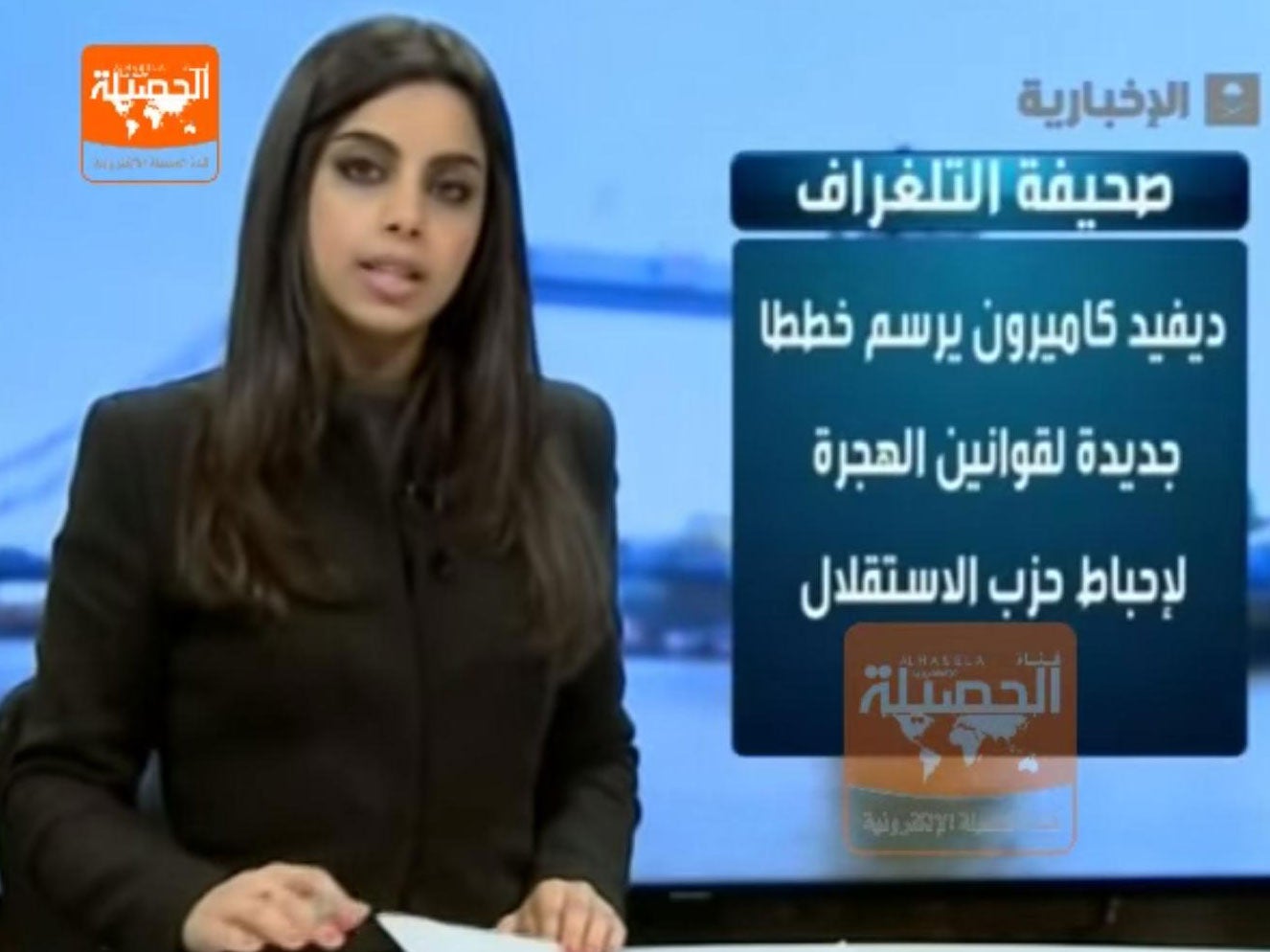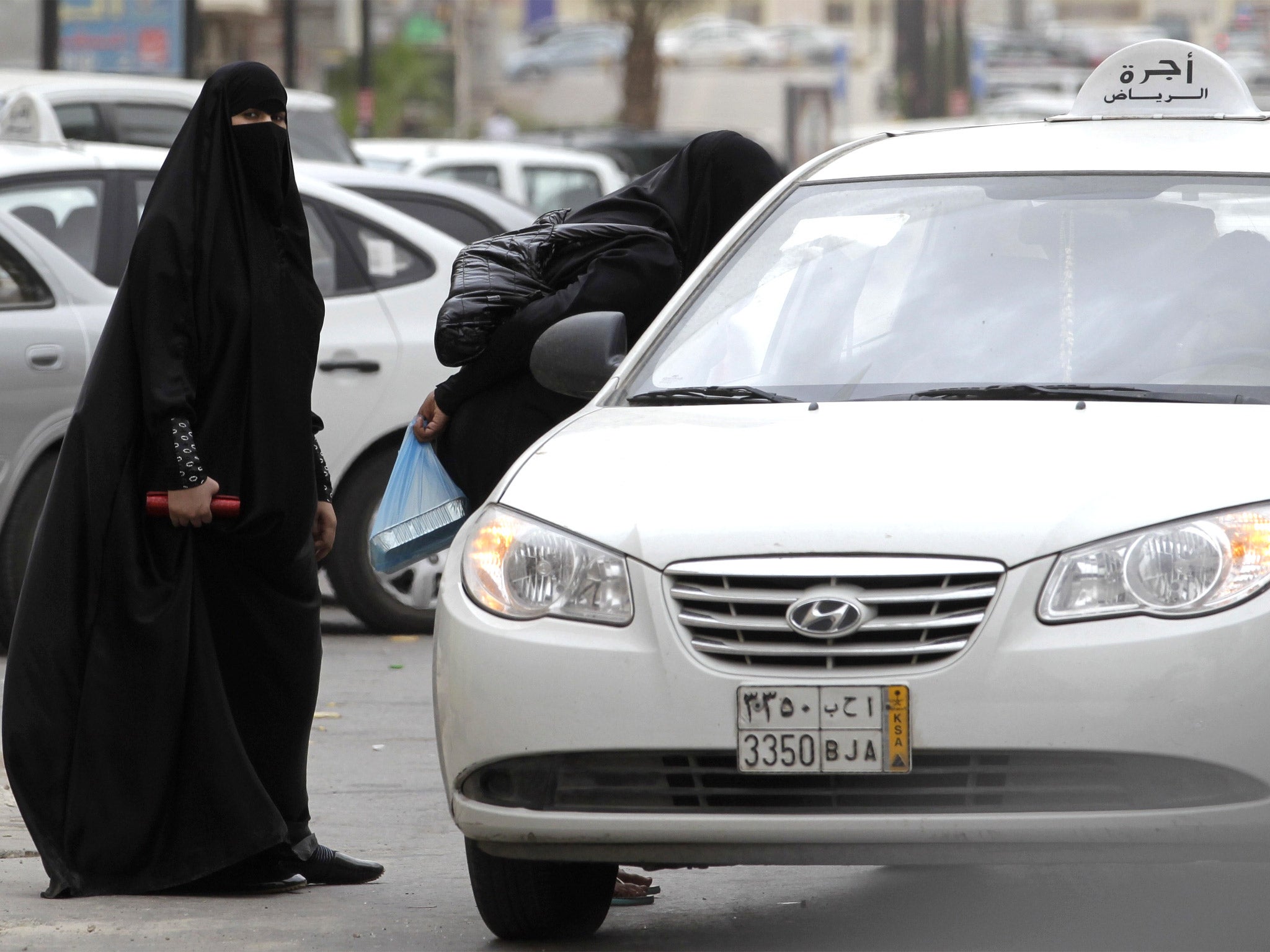Outrage in Saudi Arabia at appearance of female newsreader without headscarf on state television
Strict Islamic codes of dress and behaviour are rigorously enforced

The unprecedented appearance of a female newsreader on Saudi state television without a headscarf has caused a scandal in the deeply conservative Islamic state.
The unnamed anchor, who has previously worn a hijab in clips circulated online, was reading a bulletin from London for the Al Ekhbariya channel.
Strict Islamic dress codes in Saudi Arabia require women to dress “modestly” – usually with headscarves, veils and full-length abayas.
While women do sometimes appear without head coverings in programmes broadcast by state-controlled channels, newsreaders are never seen without the hijab.
Saleh Al Mughailif, a spokesman for Saudi radio and television, told Al Tawasul news the correspondent was reading the news from the broadcaster's British studio.
"She was not in a studio inside Saudi Arabia and we do not tolerate any transgression of our values and the country’s systems," he added.
He promised that all measures would be taken to ensure there is no repeat of the incident after many viewers expressed outrage.
Al Ekhbariya, which has offices in the Middle East, Europe and America, is known for its use of female anchors after having its maiden broadcast in 2004 presented by the country’s first female news presenter.
Social networks in the Saudi kingdom largely commented on the unusual sight of an unveiled woman reading the news, Gulf News reported, and some condemned it as transgression of national traditions.
Others said the issue should not be blown out of proportion or welcomed it as a sign of growing women’s rights.
Lashes, hanging and even beheading are among the punishments awaiting women convicted of blasphemy, apostasy, adultery and witchcraft.
It is illegal for women to drive in Saudi Arabia and Islamic codes of behaviour and dress are strictly enforced by the “mutawa” religious police.

What is considered acceptable varies across the country, with the full veil (niqab) worn almost universally in the more conservative capital Riyadh, whereas some women opt for the hijab in the more relaxed city of Jeddah.
Society has been divided over the possibility of granting women more rights as the Government’s labour ministry encourages more women to take up jobs in the private sector, against strong resistance from conservative groups.
King Abdullah Bin Abdul Aziz has appointed 30 women to his advisory body, the Shura Council, in a landmark decision for women’s status, Gulf News reported.
A billionaire Saudi prince and businessman, Prince Al Waleed Bin Talal, is also rumoured to take a moderate stance in offices of his Kingdom Holding business empire by not enforcing the veil for employees.
Join our commenting forum
Join thought-provoking conversations, follow other Independent readers and see their replies
Comments